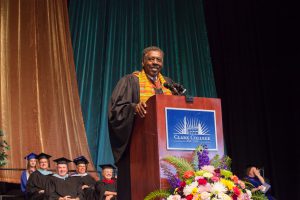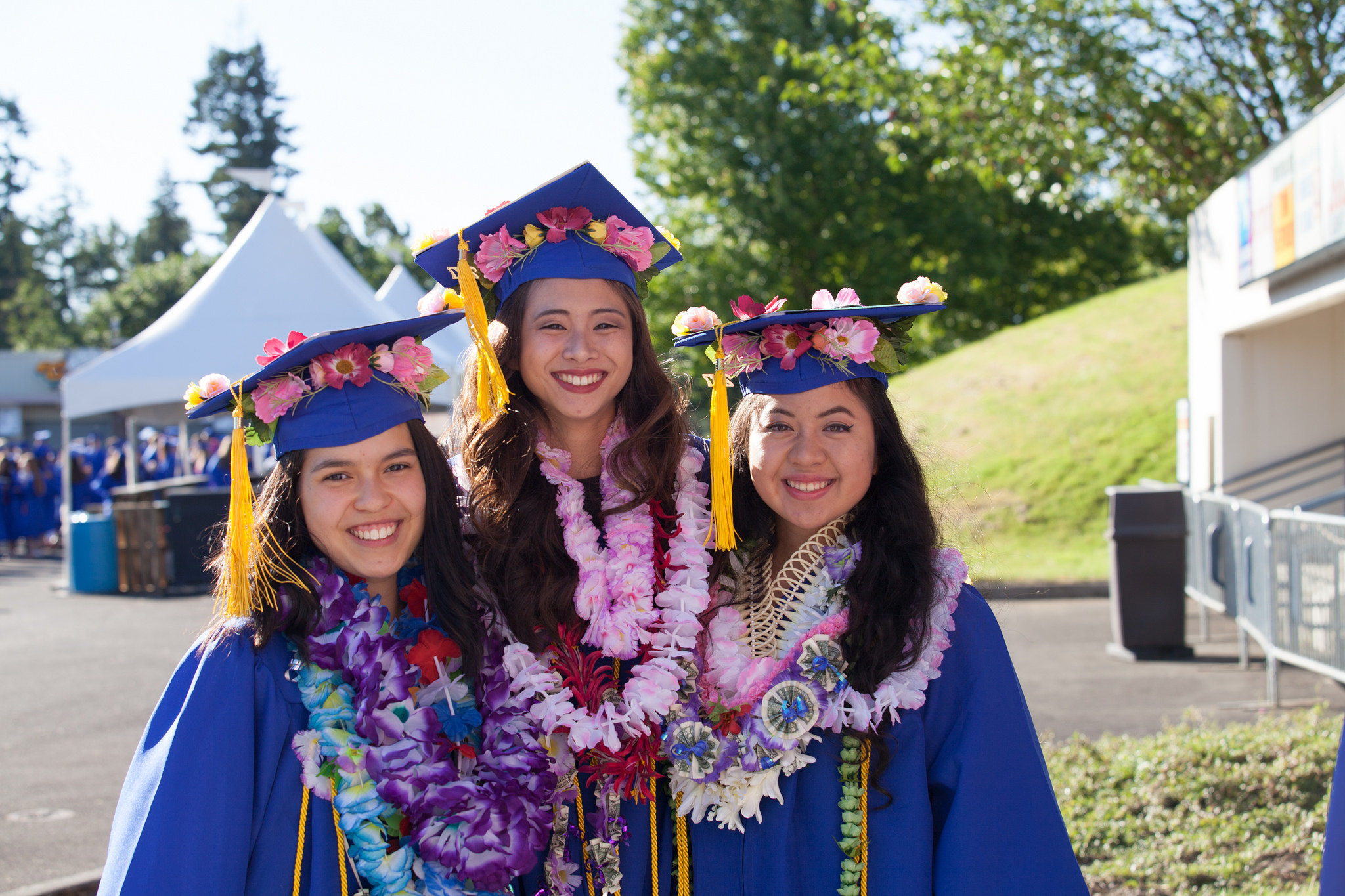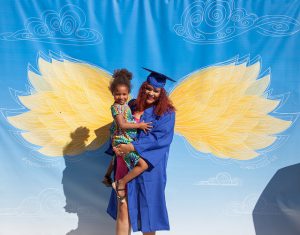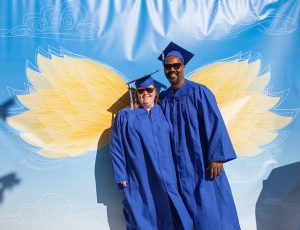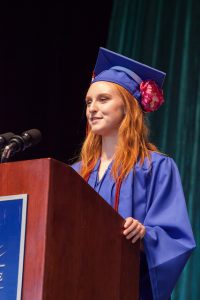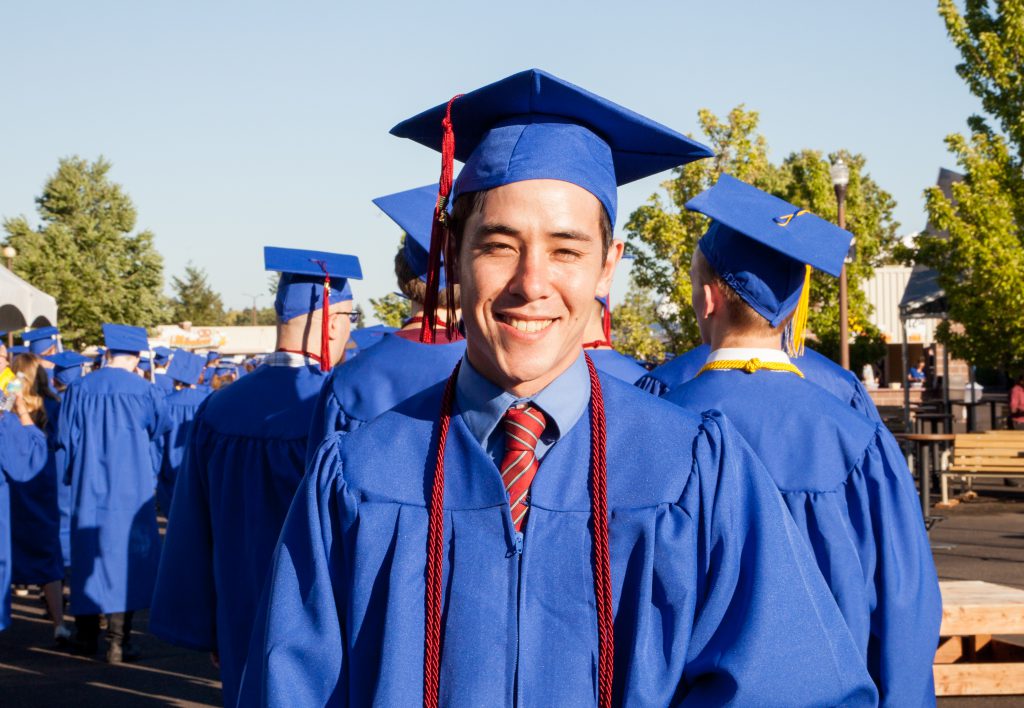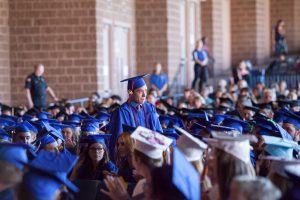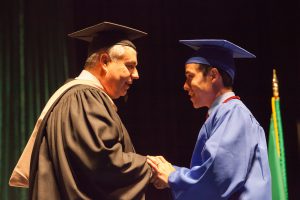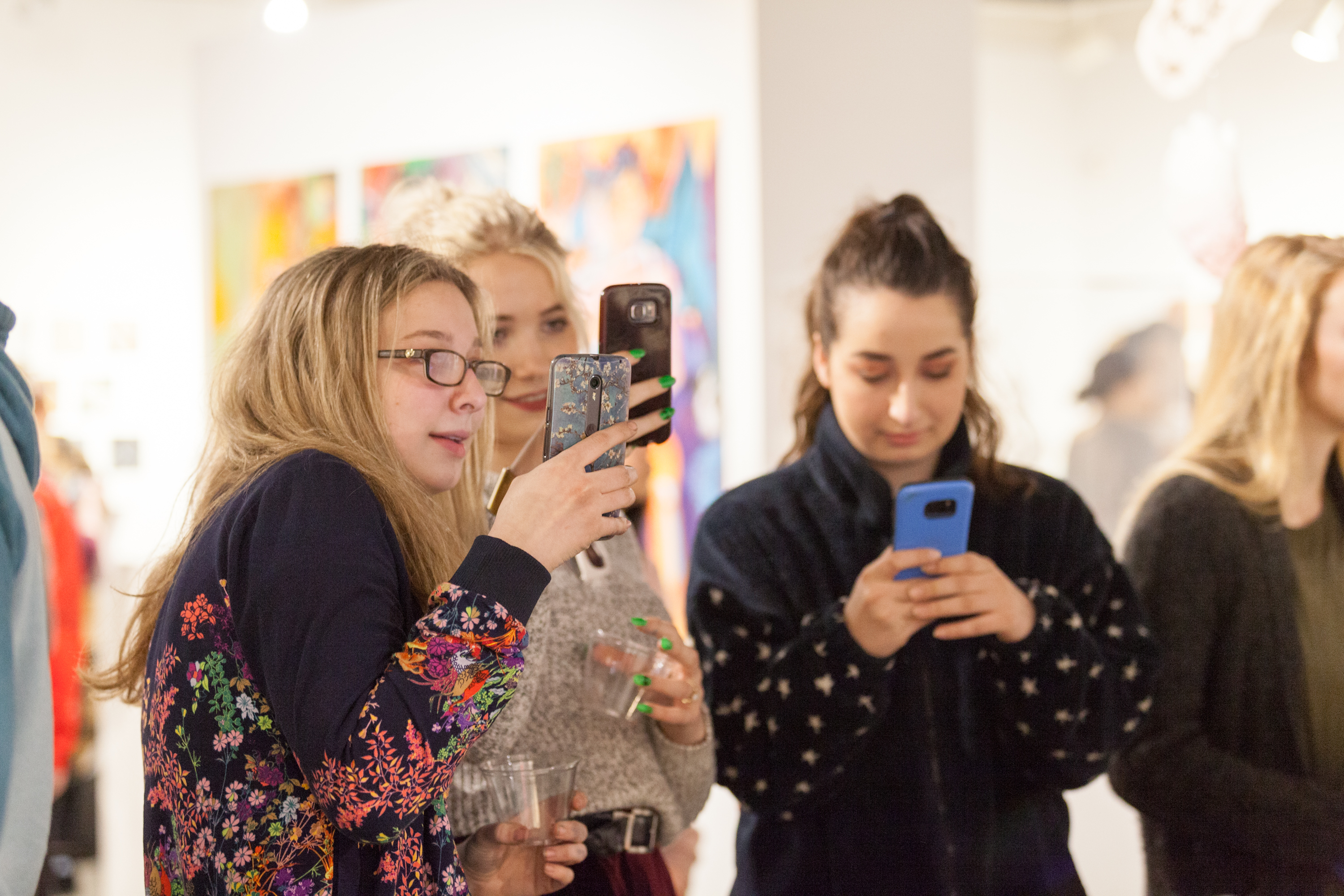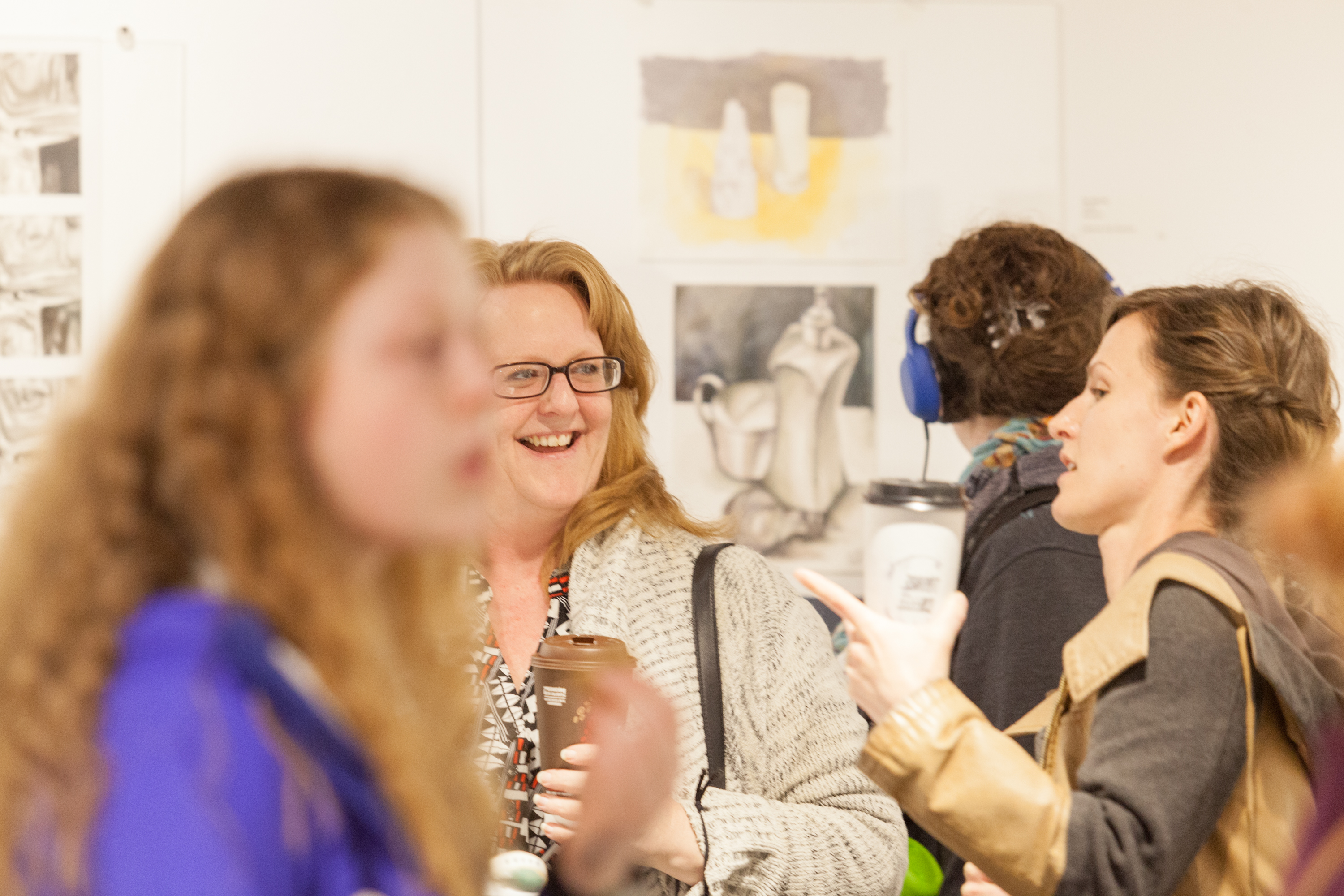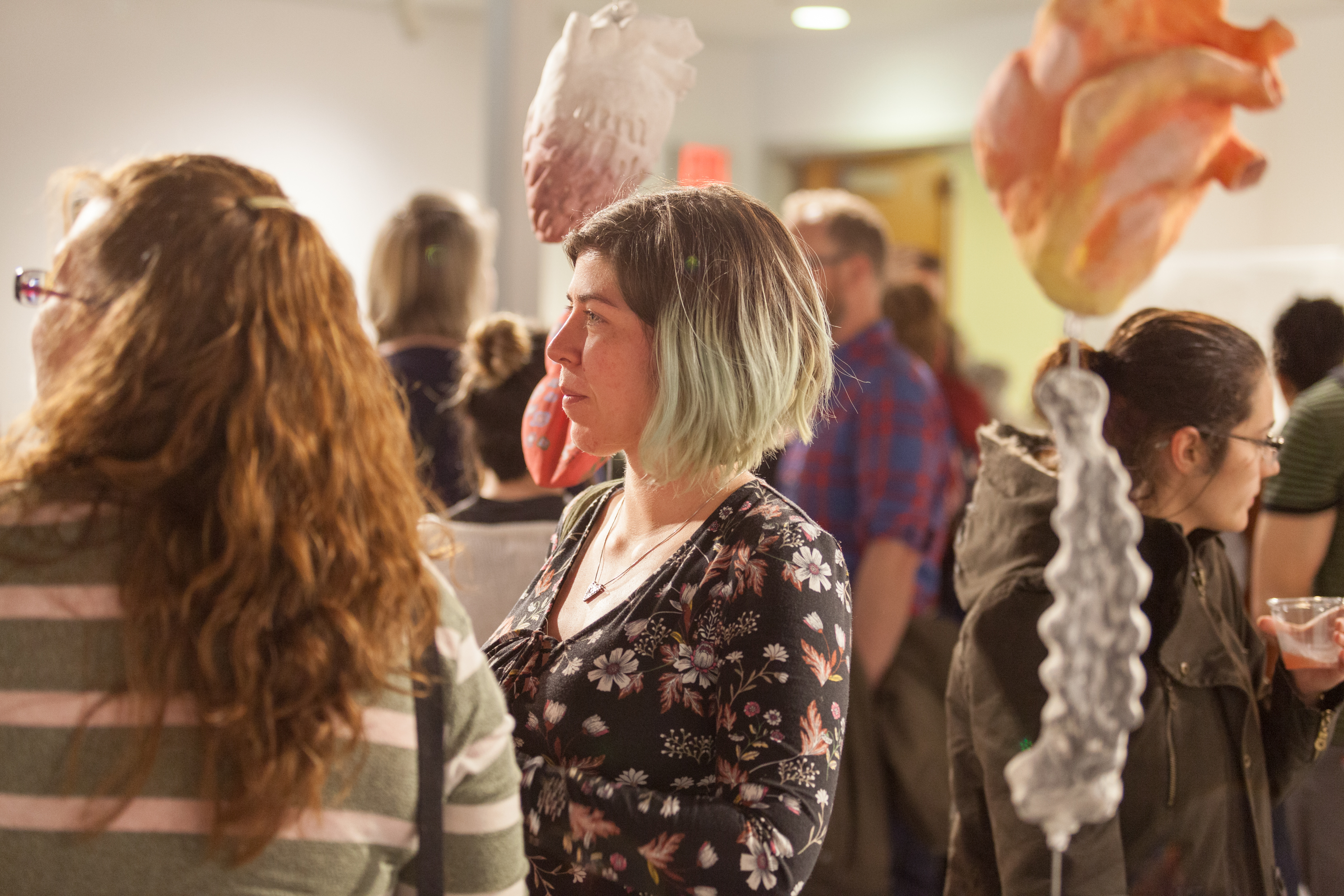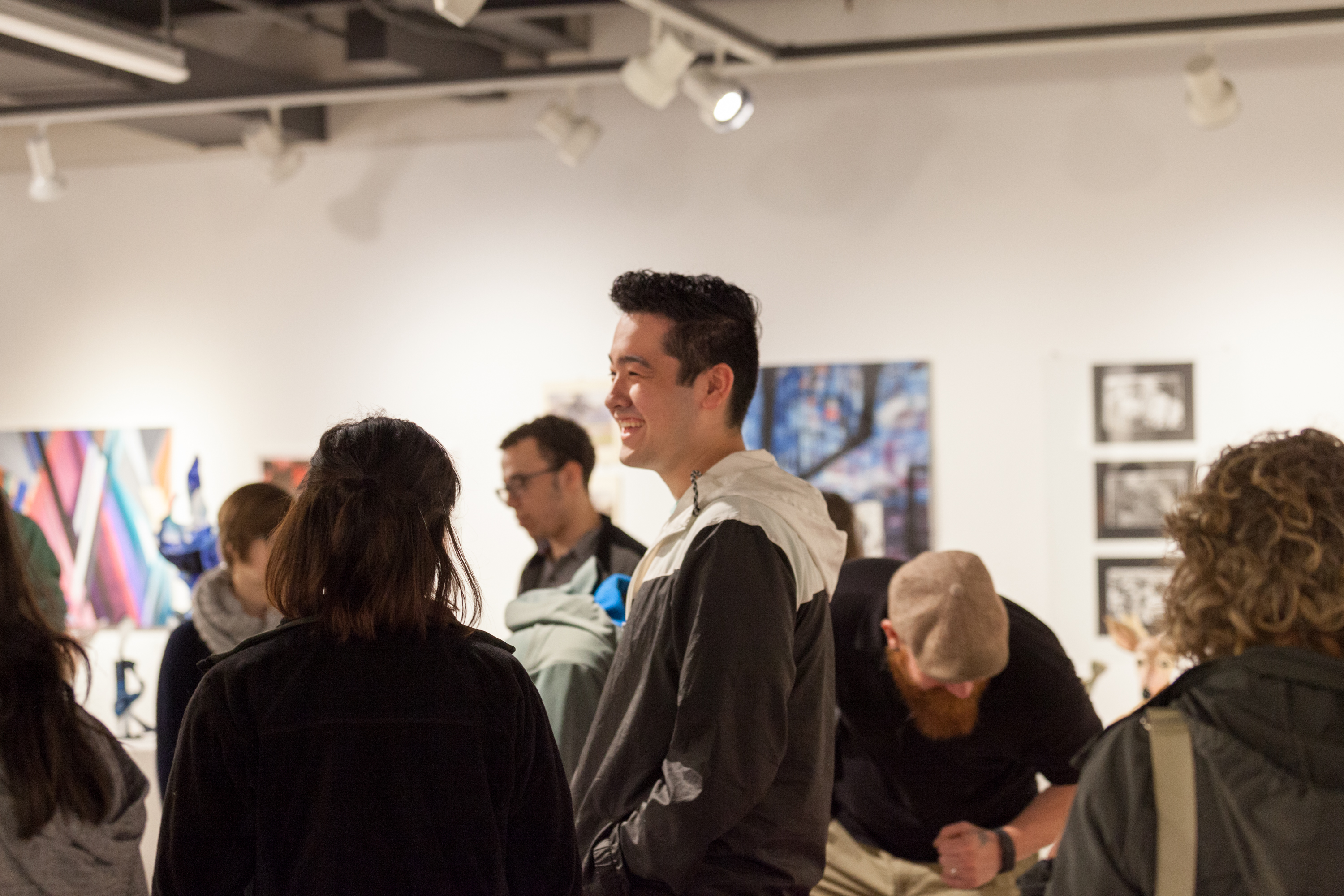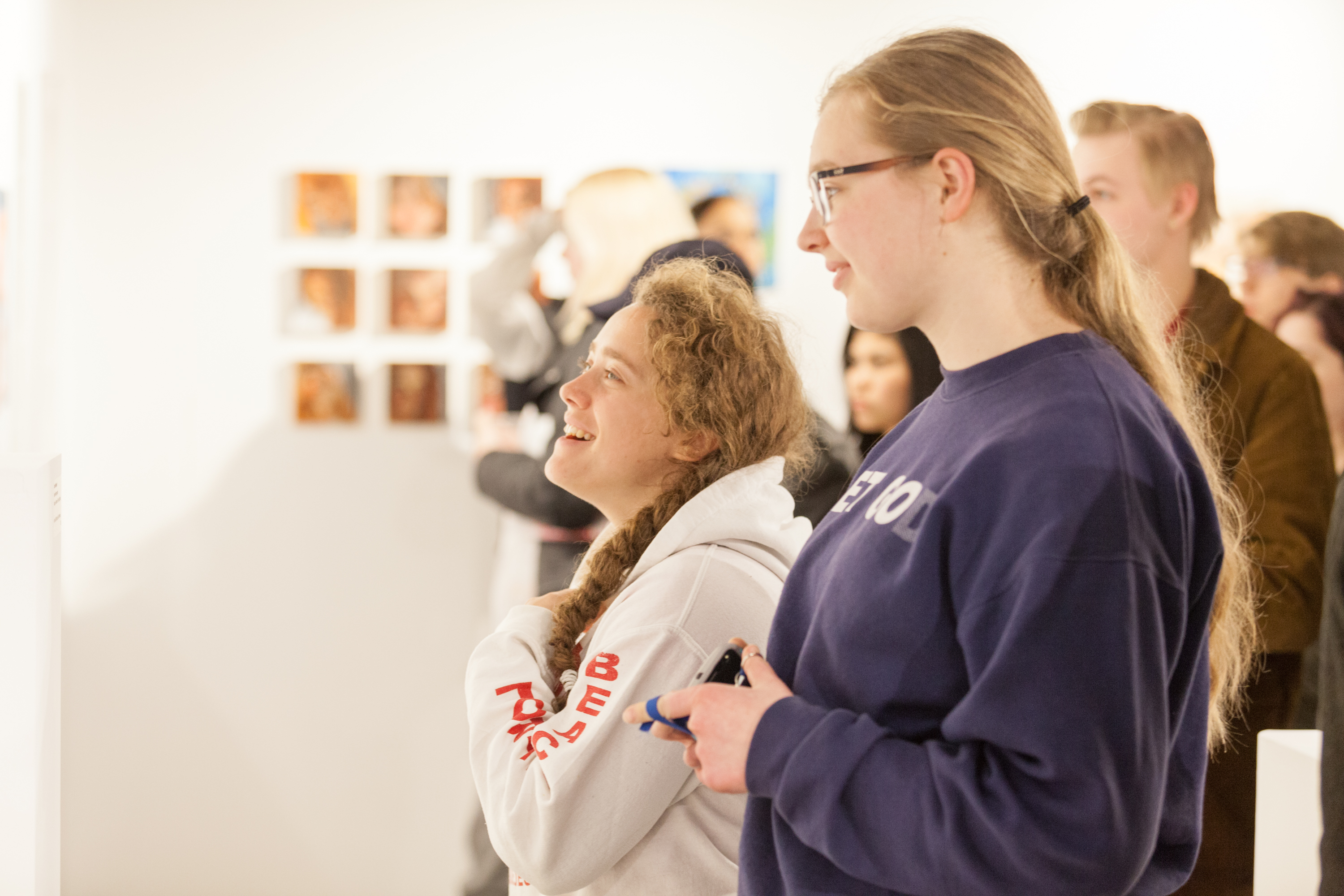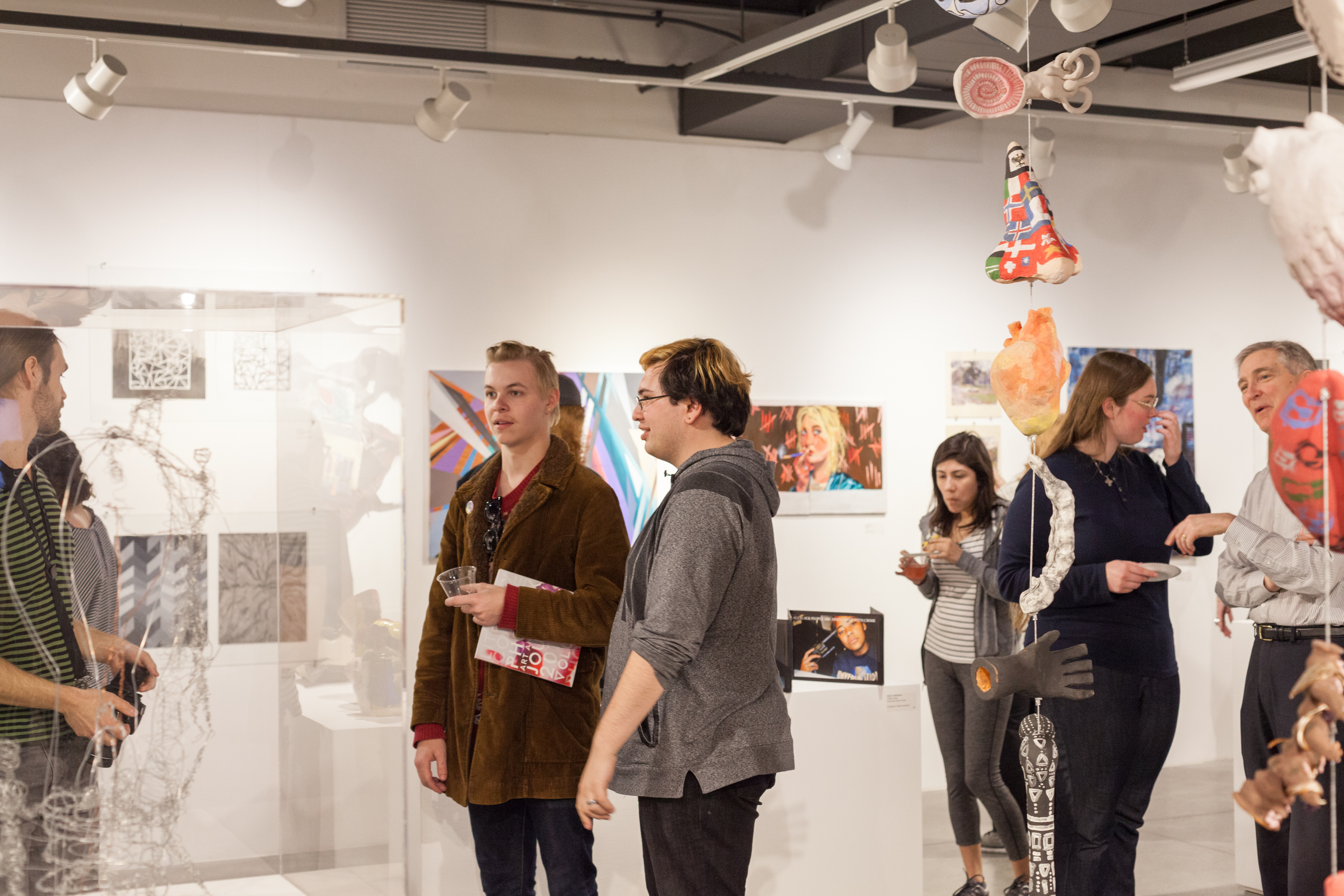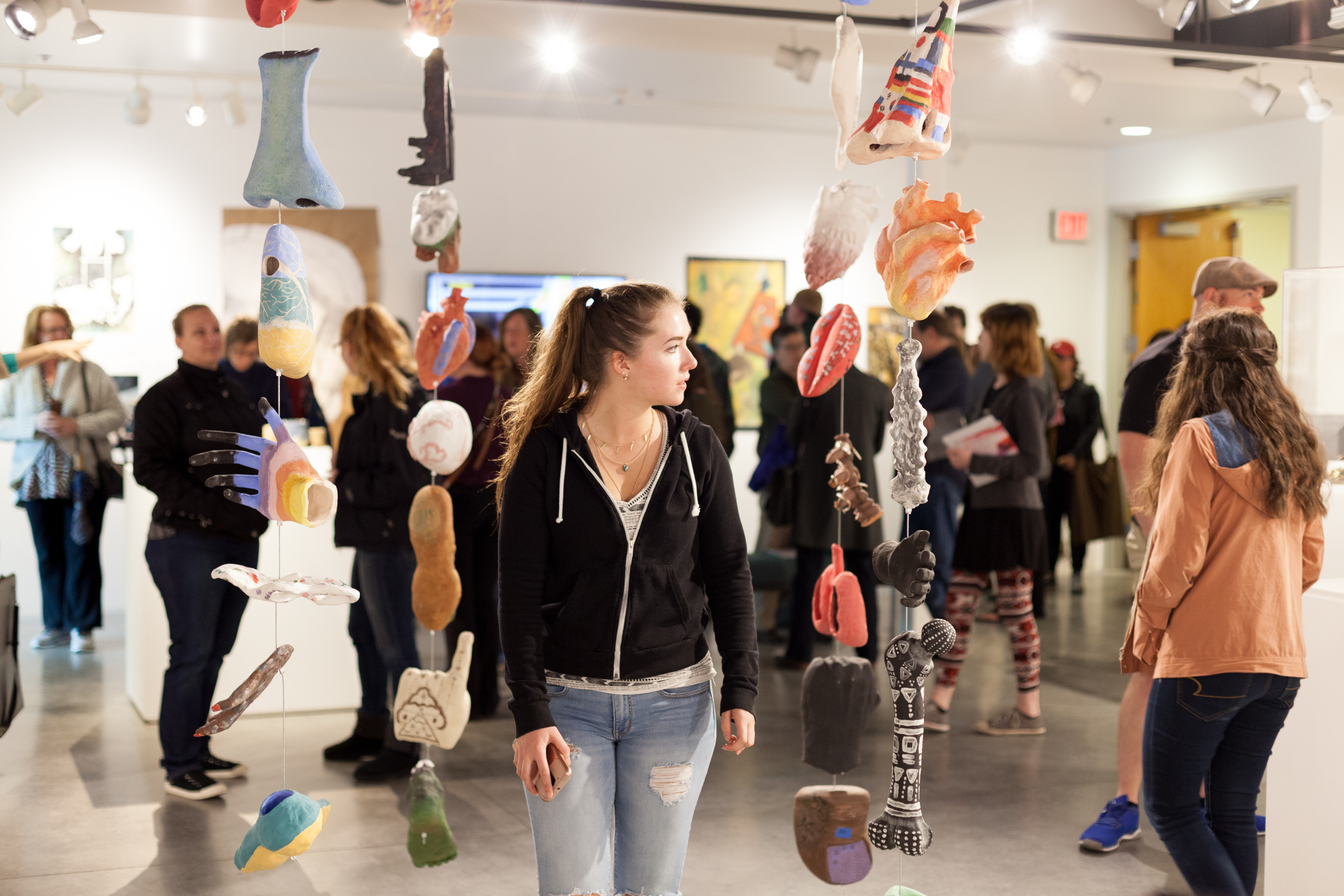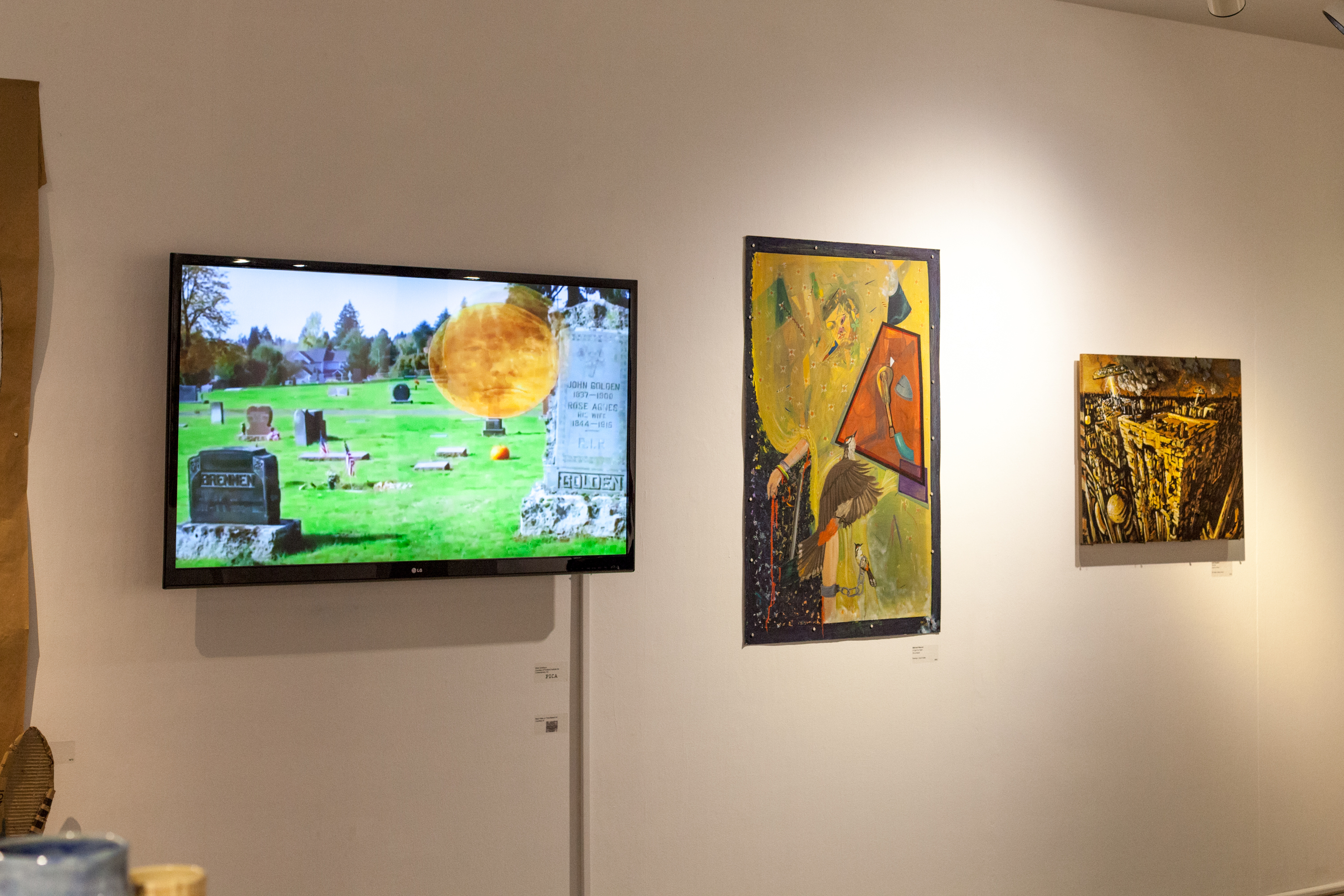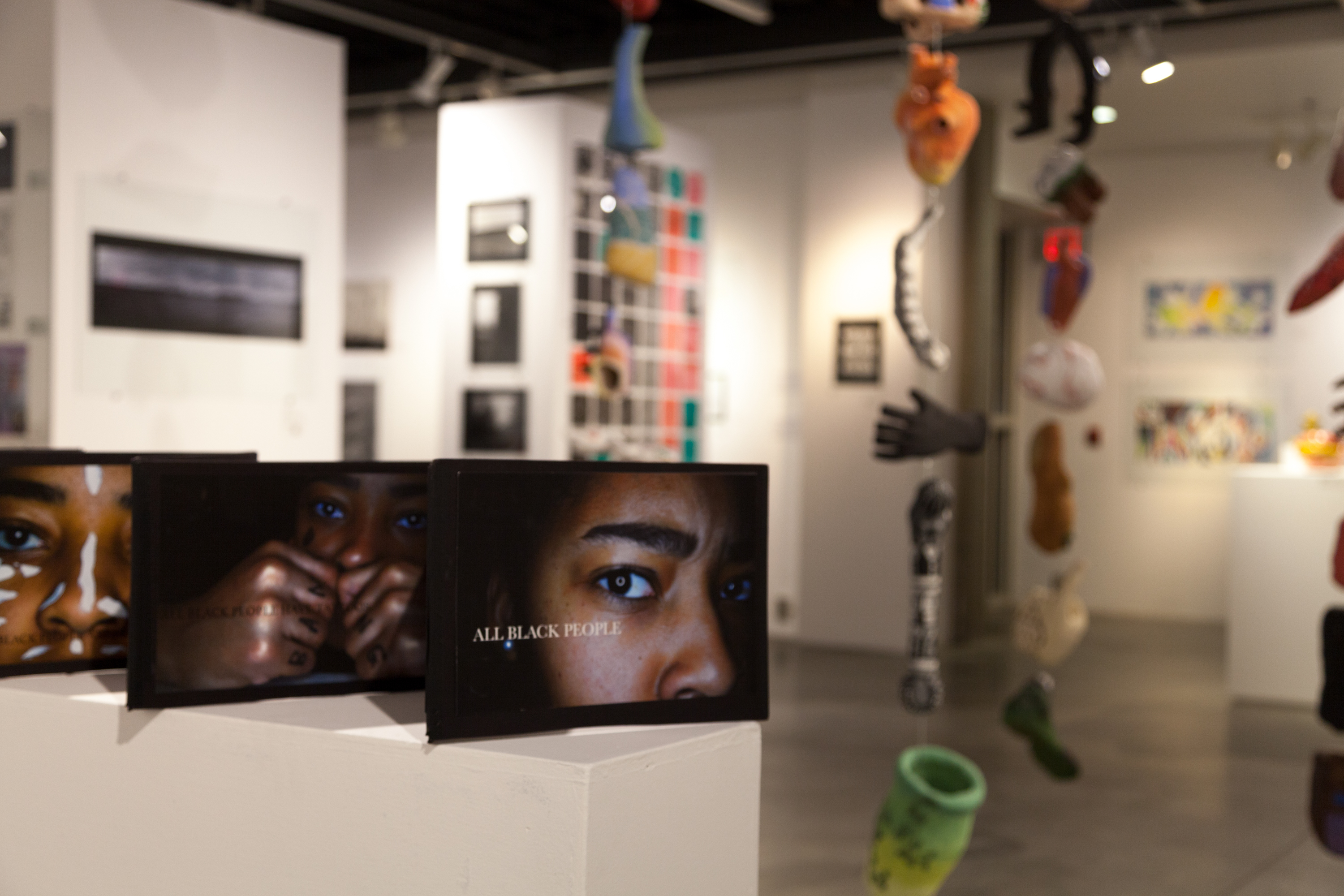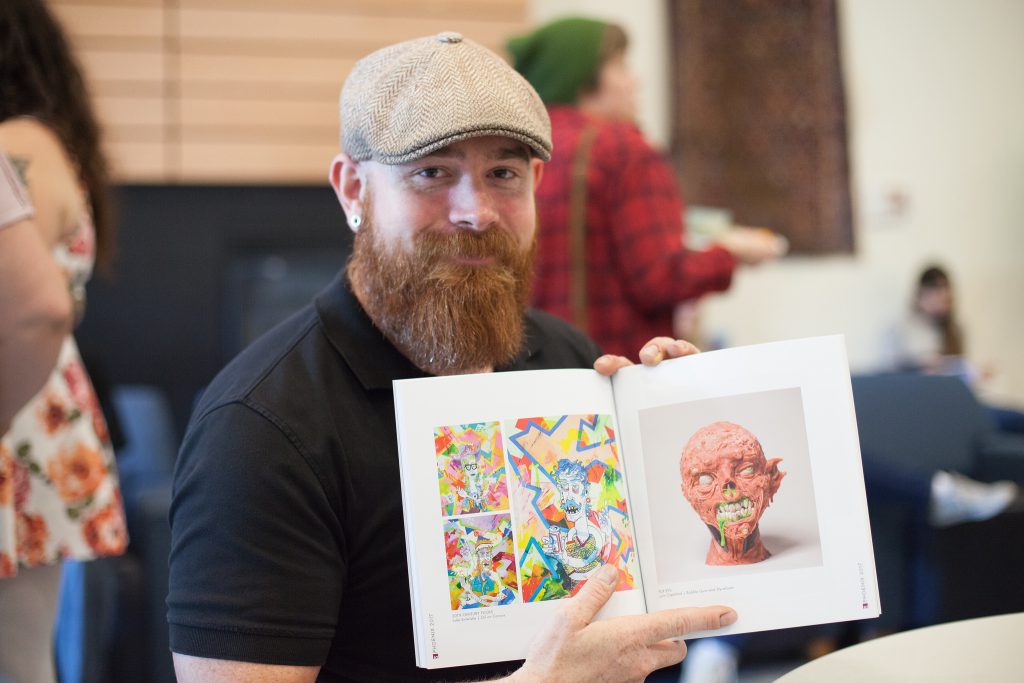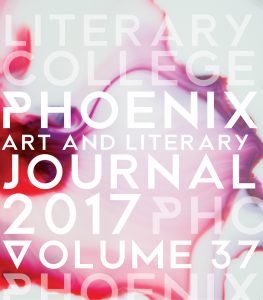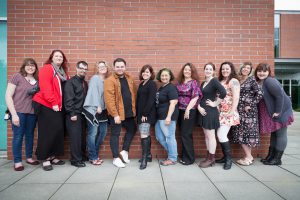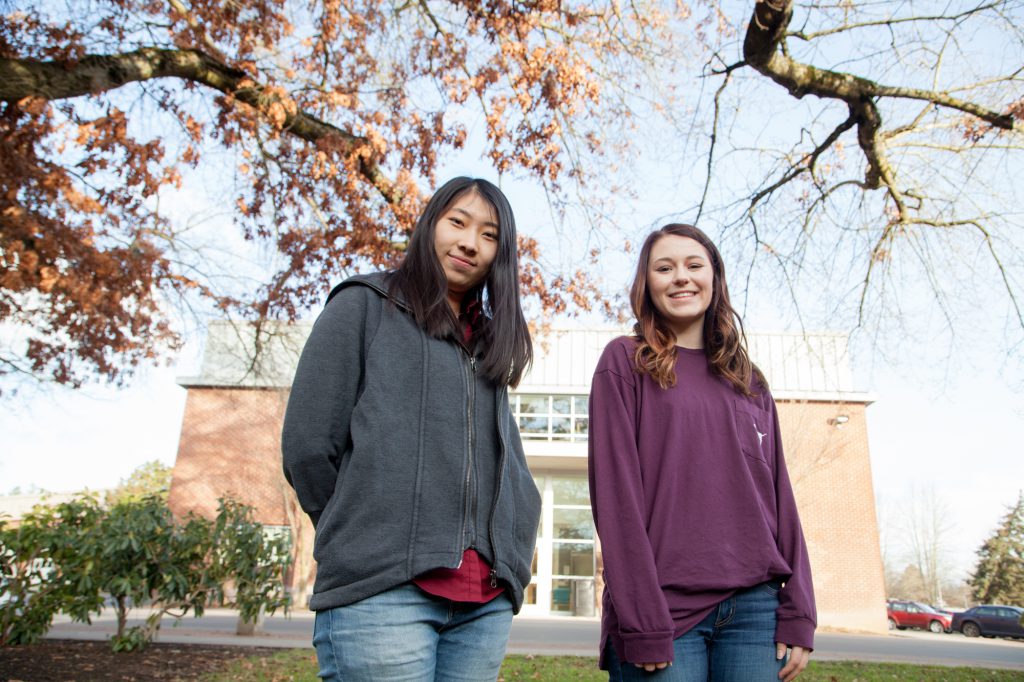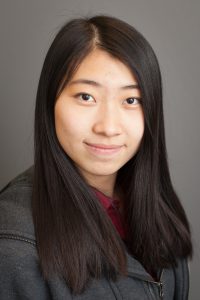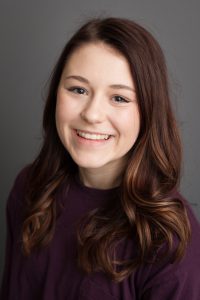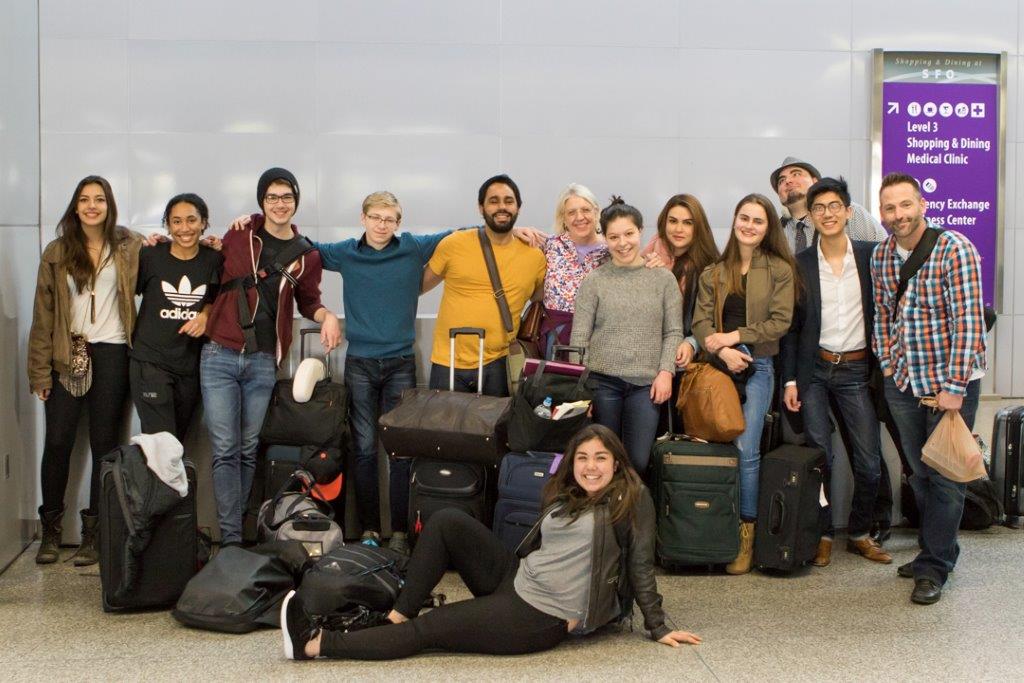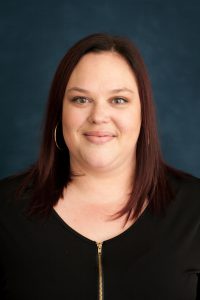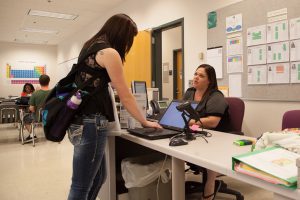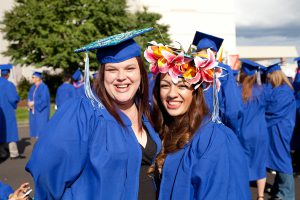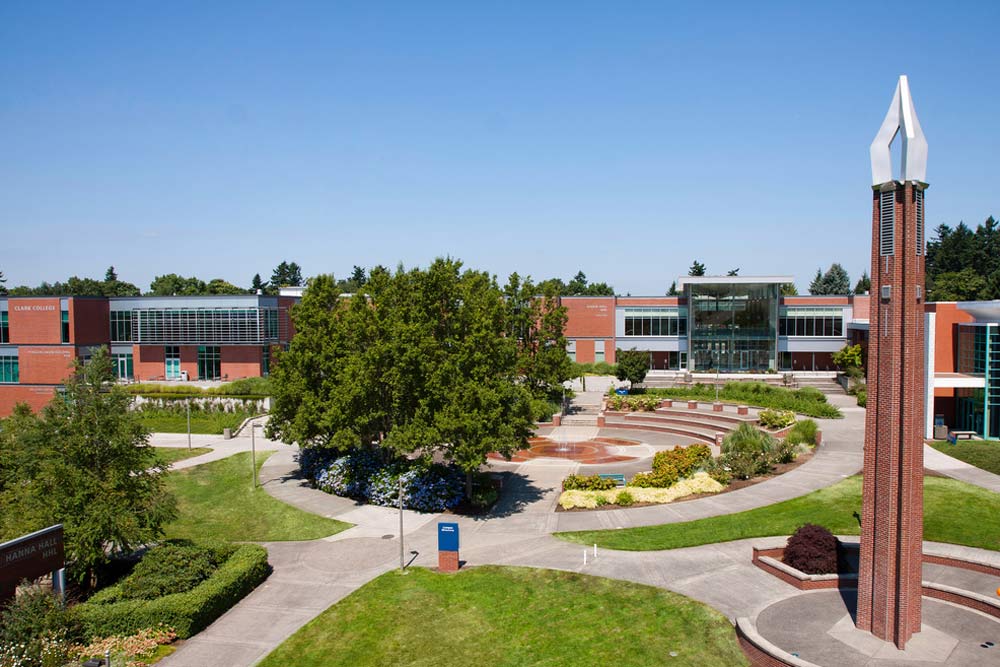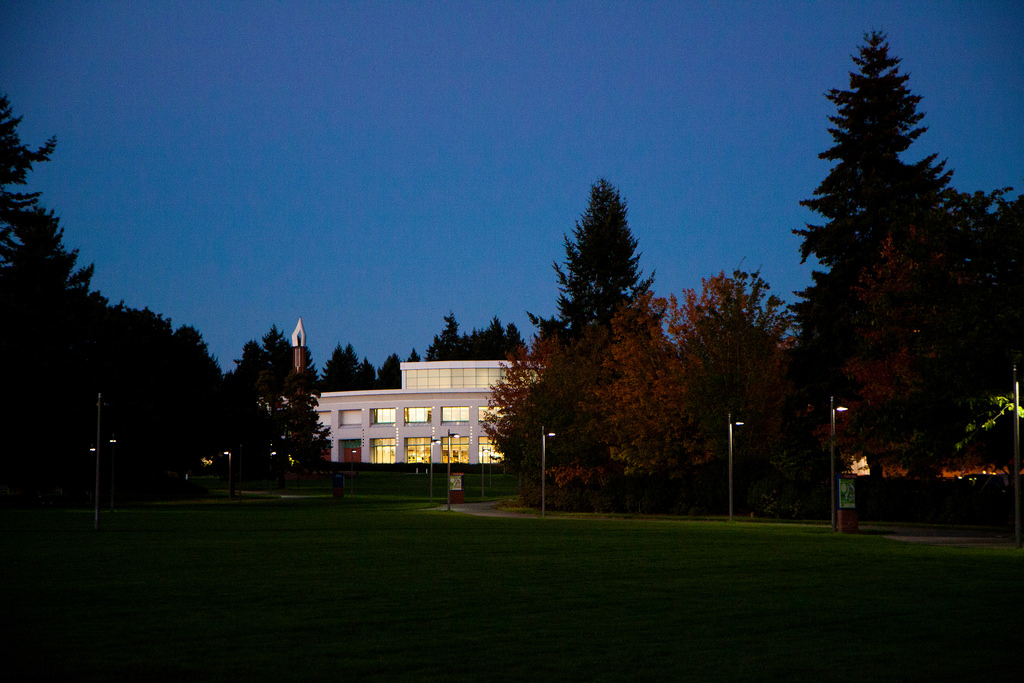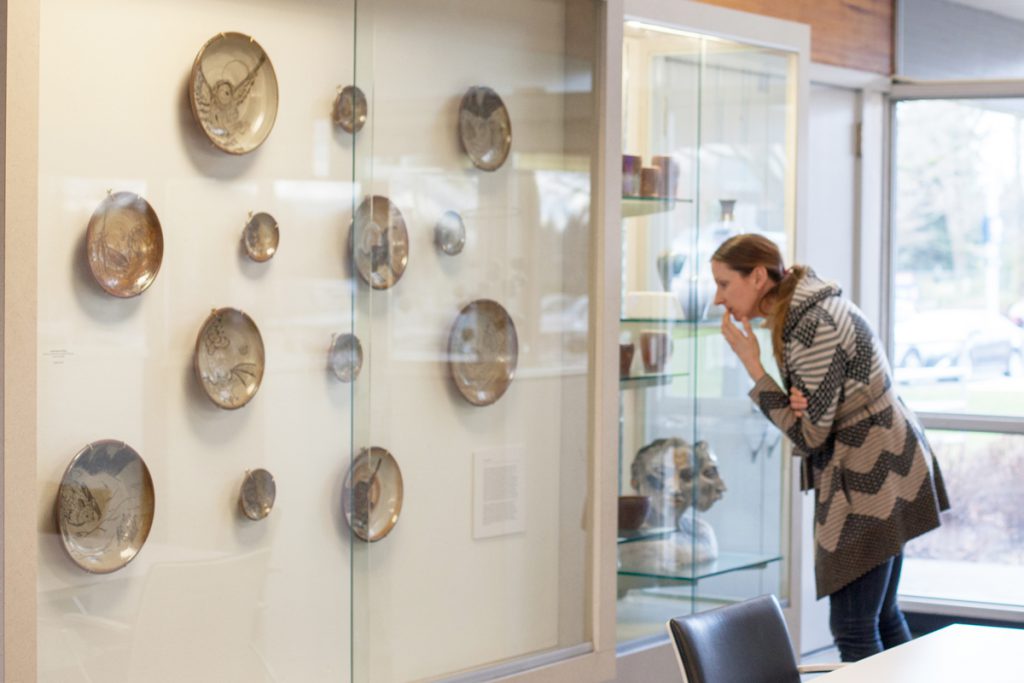 The Next Step: An exhibition of work created by alumni from the Ceramics Area at Clark College.
The Next Step: An exhibition of work created by alumni from the Ceramics Area at Clark College.
On February 22, several Clark College alumni gathered in the Frost Art Center’s lobby gallery during the reception for their collective show, “The Next Step.” The brainchild of art professor Lisa Conway, the show highlights the achievements of former students in the college’s ceramics.
“I feel really kind of flabbergasted to be doing this,” said Trish Bottemiller ’15, gazing at a fellow alumna’s delicately painted bowl. “It’s so nice to be back to see what everybody else from Clark is doing.”
Bottemiller said that her time at Clark was “a huge influence” on her artistic path. “I had never touched clay before I came to Clark,” she said. “Clark definitely prepared me to continue my education at [the Oregon College of Art and Craft]. My portfolio was approved before I even applied, because I was so thoroughly prepared for what I was up against.”
The show runs through March 25 and is part of Clark’s programming during the upcoming National Council for Education in the Ceramic Arts conference in Portland in March. According to the show’s opening statement, “Collectively, these 10 artists have all found employment in their field, built their own studios, completed residences, internships, mentorships, or transferred on to other undergraduate and graduate programs in ceramic arts. Most importantly, they have all created their own communities for sharing resources, advice and inspiration along the way.”
Read more about the artists, in their own words:
Elizabeth Alexander
Trisha Bottemiller
Jordan Jones
KeigKenzie Studios
Hector Macias
Yelena Roslaya
Lauren Ruhe
Aleka Tomlinson
Alyssa Willard

LIZ ALEXANDER
I applied to Clark College exclusively to take ceramics classes, and eight short months after enrolling I finally got the chance to sign up for Ceramics I and rapidly became obsessed with clay. Ceramics II and III quickly followed, as well as a Special Projects class so I could continue working with clay beyond the typical class projects. When the time came to graduate from Clark, the thought of losing access to the equipment and supplies (that were now essential to my practice and I couldn’t afford on my own) was worrying to say the least. Fortunately, one of my ceramics teachers strongly suggested that I apply to Oregon College of Art and Craft and to my astonishment I was accepted.
I am now in my thesis year at OCAC and my studio practice has changed a lot from what I thought it would be. When I started making work I didn’t understand the environmental effect that just creating a piece of art can have. I thought nothing of buying supplies for a new project or what my pieces were made of. With each year that I have been in school, however, I’ve gained more knowledge about the responsibilities of being an artist. For me, being a responsible artist means having an awareness of the materials that I use in my work and using as much recycled and eco-friendly supplies as possible, including found objects. I still have a lot to learn to reach the type of working practice that I want to achieve, but this is my way of continuing to create without feeling like I am just producing objects to clutter up the world we live in.

TRISH BOTTEMILLER
When I first came to Clark, I was determined to be a drawing/painting major. That was what I had done, and been good at, my entire life. One fateful semester, though, I found myself in a ceramics class as an elective. It changed my life, and eventually became my major. I transferred from Clark to the Oregon College of Art and Craft, where I currently study for my Bachelor of Fine Arts in Ceramics. The transition from the familiar, community space of Clark’s ceramics department was a bit scary and it took some time to really feel at home in my new school. I’m learning so much, and I’ve had the most amazing exposure to an entirely art-based community thanks to OCAC. It has forever changed who I am as a person and as an artist. I never imagined I would be making the things that I am. Currently, I’m very invested in both figurative sculpture, and mold-made slip-cast objects using a marbling technique that I have become rather obsessed with. I have the amazing opportunity to create not only my own glazes, but my own clay bodies. Lately, much of my mold-made objects are cast using a cone 10 translucent porcelain that has been a learning experience to work with. I look forward to learning even more. It is never enough.

JORDAN JONES
I left Clark College to pursue a three-year apprenticeship with Robbie Lobell and Cook on Clay on Whidbey Island. I was thoroughly excited, completely nervous, and definitely overwhelmed as I left Clark in a whirlwind heading for my new adventure in clay. This opportunity allowed me to continue to work in ceramics after Clark, and also gave me the tools to continue working in clay after the apprenticeship was over. I was immersed in the day-to-day aspects of the life of a studio potter, along with learning how a small business in artisan manufacturing runs and grows. I had a studio space and Robbie’s mentorship, which greatly helped me develop my voice and style. After completing my apprenticeship, I worked at Cook on Clay as an employee before taking the plunge and committing to working for myself full-time as a studio potter. I currently continue to live on Whidbey, sharing a house and home studio with my studio mate from my apprenticeship. I create functional pottery with playful and lively animals carved onto my pots. Like many other potters, I believe that using handmade objects brings joy to people in their daily lives. I want my pots to delight the people that use them. I use a stoneware clay that I decorate with sgraffito and slip inlay, soda-fired to cone 10. I am interested in exploring cone 6 electric firing again and plan to start experimenting with that soon.
I think one of the biggest resources for continuing to work in ceramics has been getting involved in my clay community. There are so many wonderful and knowledgeable people out there. Also, the “Field Guide for Ceramic Artisans” compiled by Julia Galloway, is a fabulous resource chock-full of valuable, helpful information. My advice for students at Clark who want to continue their pursuits would be to put yourself out there as much as you can. Become involved in your clay community, and get to know the people around you. Apply to shows, call for entries, and galleries. Research and pursue different ways to continue your education, whether it be undergrad, grad school, residencies, workshops, assistantships, or apprenticeships. There are so many different ways to continue on your path, find out what works for you.

KEIGKENZIE STUDIO: SAM MACKENZIE & KELLY KEIGWIN
We both began our journey with ceramics at Clark College, Sam in 2003 and Kelly in 2010. Upon exiting we knew we wanted to continue to create pottery, but didn’t know it would become our primary form of expression. We had the common questions of how and where to keep working, since we couldn’t immediately build a ceramics studio of our own. Sam continued her education at Oregon College of Art and Craft, which lead to teaching art classes for children. After we met, Sam recommended Kelly join her working at OCAC which brought Kelly back into a ceramics studio.
Sam was able to seek out and purchase used items to start a home studio, including an ancient Skutt kiln and a Pacifica wheel. We’ve had to learn along the way about repairing and keeping used studio equipment running. We recently upgraded to a larger, newer used Skutt kiln, but it’s taken a while. We learned many things by working with other potters at OCAC and by visiting Georgie’s in Portland. For those who can’t buy their own equipment, it is possible to work and have your pieces fired at Georgie’s, at community centers, and even at other artists’ studios for a fee.
We’re fortunate to have a home studio. It is nothing fancy, but it gets the job done. Our advice to students who want to continue pursing art after graduation is to make sure you know your resources. Don’t be afraid to be scrappy. There are many paths to take with art, particularly ceramics and pottery. Do you want to be in gallery shows? Do you want to be a studio potter? Do you want to be an educator? OCAC is a good option for continued learning and access to equipment – either by seeking a degree or simply signing up for an evening class.
We have both taken meandering paths in life, in general and artistically. We both have many years of experience working in various media, but pottery has become a natural way for us to work collaboratively and sell work to support ourselves. Generally speaking, Sam throws on the wheel, while Kelly throws, does some slab work and hand building. Kelly carves imagery on the pieces and we both work on glazing. Our work is mostly cone 6 porcelain and features colorful characters that reflect both the lighter side of human experiences and connect with personal emotions. We often feature hearts and themes of companionship – a reflection of the happiness and love we all long for. We find that people connect with these images personally, in a way that evokes positive feelings and simple joy.

HECTOR MACIAS
It started with a pottery class in high school. The art credit I desired went on to fulfill its purpose and more. With an interest in ceramics, I found myself in the pottery studio at Clark College. During this time, I had the opportunity to learn and explore more about ceramics than I could ever imagine. After leaving Clark, I ran into one of the problems every ceramic student would face, studio space. Luckily, Oregon and Washington both have great ceramic communities with great opportunities. I became involved with the Oregon Potter’s Association and found studios to temporarily work in. It wasn’t until a few months later that I bought my first potter’s wheel and now I happily work in my studio at home.
My style of ceramic work is largely influenced by Japanese pottery. The wares that I create are wheel thrown from porcelain or on occasion from red clay bodies. I’m a big fan of using celadon glazes and glazes with a lot of flux. My work is almost always made to be functional. There’s nothing like eating and drinking from handmade wares. If you have never used a pottery wheel I encourage you to try it sometime. You might find the experience to be very therapeutic.

YELENA ROSLAYA
My immediate feelings after leaving Clark College were nervous and excited at the same time. I was nervous not knowing what was ahead of me or what was going to unfold in terms of my artistic career. I was also excited because it was like an adventure where I couldn’t predict what was going to happen. After leaving Clark College, I transferred immediately to Oregon College of Art and Craft, where I focused on Ceramics. Four years later, I graduated with a BFA from OCAC and am now assisting ceramic artist Careen Stoll in Battle Ground. At OCAC, I pushed myself and worked beyond academia. I tried to take every job opportunity or call to artist that came up that pertained to me. This led me to be a step ahead above my peers as well as access some great collaborations I didn’t expect.
My ceramic work is evolved around sound, musical instruments, and my personal experience with hearing-motion synesthesia. My style tends to be formed intuitively and I love to use colorful underglazes and crawling glazes that contrast each other. It gives the work energy and motion as if it’s alive. I currently share a studio space with Careen Stoll, where we share ideas, advice, and helpful information. It’s a two-way mentoring atmosphere. My personal advice for ceramic or art students who want to continue their pursuit after graduation is to keep going, to continue looking and applying and never give up.

LAUREN RUHE
After completion of my AFA at Clark College, I continued my education at The Oregon College of Art and Craft (OCAC). While attending OCAC, I focused on improving my techniques, as well as on finding my own voice and style for my work. I also developed new and useful skills, such as how to make my own glazes, different methods of firing clay, and digging up local clay in order to process it into a usable material.
A frequent theme that I use in my work is the memory of the place where I grew up. I spent my childhood in a thickly-wooded area located outside of Vancouver, Washington, where I encountered wildlife daily. The forest was a mysterious and magical place that was full of life, and also seemed much bigger than anything I could have ever imagined. I encountered forest animals daily, and my family even named some of the frequent visitors to our yard. These forest friends have been the main focus of my current work.

ALEKA TOMLINSON
After taking ceramics courses at Clark College as part of the Running Start Program in 2006, I transferred into a BFA program at the Oregon College of Art and Craft. After that I took a hiatus from clay and made work privately in book format through drawing and painting. A job opportunity as studio technician at Pigeon Toe Ceramics in Portland brought me back to clay. I quickly grew from my position as a studio tech to a full time production potter and operations manager. During this time, I was able to make connections with local artists in Portland and began working as an assistant to artists Lilith Rockett in ceramics and Andy Paiko in glass.
In 2015 I was accepted by the Ash Street Project in Portland, a ceramics mentorship program run by Thomas Orr and Joanna Bloom. I was fortunate to spend 11 months sharing a studio with Thomas and Joanna, three other mentees, and a number of visiting artists including Jean Nicolas Gerard, Eva Kwong, Jessica Jackson-Hutchins, Dirk Staschke, Jennifer Kenworth, Michelle Liccardo, and my teacher from Clark, Lisa Conway. During my time at Ash Street I took advantage of the dedicated studio space and found my voice as a ceramic artist. Upon leaving in the summer of 2016, I moved into a private home studio and worked part time as assistant to ceramic artist Brian Jones. That fall I assisted artists Birdie Boone and Matt Repsher during an 8-week concentration at Penland School of Craft in North Carolina, after which I returned home to Portland to continue work in my own studio, while assisting artists Brian Jones and Victoria Christen.

ALYSSA WILLARD
After leaving Clark I was excited to continue my education in the arts. I went on to complete my BFA at Central Washington University in Ellensburg, and am currently working towards my MFA at Montana State University in Bozeman, with a focus on both ceramics and painting. Montana State University has great studio spaces and equipment. There are wood-fired kilns, electric kilns, gas-fired, and soda/salt kilns all available for me to use. It is also great because I am surrounded by so many talented artists who work in a variety of mediums; their work inspires me and I can get quality feedback on my work from both the faculty and other graduate students. My advice for other art students that want to continue their pursuits is to continue to network, and actively participate in the art scene in some way, whether it’s through school, residencies, commissions, or call-for-entries.
Currently my work explores the interactions between technology and the natural environment. I am interested in the combination of plant forms with electronic or mechanical components. My work can be interpreted in different ways, and I am starting to be more interested in the viewer’s interpretation, rather than describing how I view the work. I use a combination of techniques depending on the form I am looking to create. I have also been experimenting with firing techniques. I mostly electric fire, but I also do wood and salt firings. So far the wood and salt firings have only been used exclusively for functional pieces. I have also been experimenting with room-temperature finishes, such as using spray paint and resin.
